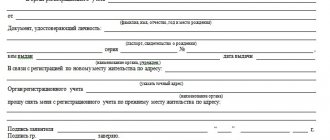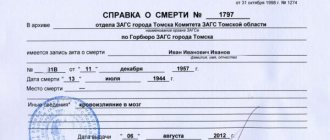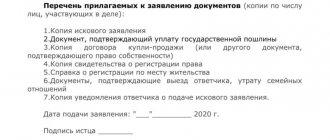Registration (registration) is one of the basic concepts in housing law. It allows a citizen to legally reside in an apartment with the permission of the owner. But it happens that as a result of a conflict, the latter has a desire to eject the non-owner from the apartment without consent. Is it possible to discharge a person without his consent? In what cases and on what grounds? What is the procedure for checking out of an apartment without the tenant’s consent? Who cannot be evicted from the apartment? All these questions are relevant for many who are faced with them.
How to be discharged from a municipal apartment
Municipal housing is non-privatized, that is, state-owned housing. The state has the right to actually dispose of it, and therefore it will be possible to discharge a tenant from a municipal apartment without his consent only through the courts.
All the grounds on which the owner can demand the discharge of a tenant are listed in Article 83 of the Housing Code of Russia. Here is who can be forcibly evicted from a municipal apartment according to the law:
- violators of community norms (hooligans, rowdies);
- citizens who have lost parental rights, and with them the right to live with the child;
- those who do not comply with sanitary standards, disturb the peace of neighbors , and pose a social danger;
- a citizen who has not lived at his place of registration for a long time;
- people who engage in illegal redevelopment, endanger the building or worsen its condition: for example, destroy walls and partitions, destroy plumbing, gas and other equipment, and damage the finish.
- persistent defaulters who have arrears on utility bills for a period of six months;
- citizens who use their living space for other purposes, that is, not as housing;
- citizens who live under a lease or social tenancy if the agreement has expired.
For reference. Before trial, the initiators of the case - family members, neighbors, guardians or other interested citizens - must contact local authorities.
It is municipal officials who will draw up and submit the statement of claim. If the court satisfies their request, then the initiator of the case will only have to draw up an application for forced deportation (the form can be found on the Internet) and, together with the court decision, take it to the district department of the Federal Migration Service.
How to evict your daughter's roommate from your apartment?
To make a decision you will need the following:
- a correctly drawn up claim;
- lack of relationship between the plaintiff and the defendant;
- the age of majority of the evicted tenant;
- his capacity;
- indisputable evidence of a person’s loss of rights to use living space.
The application must be drawn up in accordance with the legislation of the Russian Federation.
- The introductory part contains information about the court, the applicant and the defendant.
- The narrative block sets out the history of the controversy and the action taken.
- The motivation part describes the violated norms.
- The operative part with the plaintiff's demands.
In addition, other documents will be required that prove confirmation of the rights of the applicant and the defendant, as well as evidence of the settlement of the situation.
How to discharge from a privatized apartment
Privatized housing is housing that does not belong to the state and is the private property of a citizen. As an owner, the owner of a privatized apartment has the right to eject a non-owner from there without his consent.
However, we must not forget about property rights. For example, if a woman wants to write out her ex-husband, but the former spouses once purchased the housing itself under a mortgage agreement, then the matter will become more complicated. The unpaid mortgage debt is considered a common obligation of the former spouses, and they will also have common rights to housing.
To remove a tenant from registration, you must be the full owner of the property and have an extract from the Unified State Register of Real Estate or other papers that confirm ownership: deed of gift, purchase and sale agreement, certificate of inheritance or privatization. You will also need to legally sever family ties with the evicted person and obtain a certificate of divorce.
According to Article 292 of the Civil Code of the Russian Federation, family members of the owner have the right to live with him. However, if the residential premises were privatized after marriage, then it will be considered jointly acquired property, and the evicted person will be able to claim a share.
Here is a general list of cases when a tenant can be discharged from an apartment without his consent:
- Severance of family ties (divorce), except in cases like those mentioned above.
- Long absence from the place of registration. Since eviction from a privatized apartment also usually takes place in court, the owner, after filing a lawsuit, will have to prove that the person does not live in his apartment.
- Acquiring housing as a result of purchase or inheritance. In this case, the applicant is not required to report to the court the reasons for his decision. He only needs to report that the residents refuse to leave the living space voluntarily after the housing is transferred to the new owner.
- Disturbance of public peace. In addition to the owner, the initiators of forced deportation in this case are often neighbors.
- Use of housing for purposes other than its intended purpose.
- Illegal redevelopment, destruction of load-bearing structures and deliberate deterioration of living conditions.
How to evict a roommate
Only bailiffs can recognize that a given person has lost the authority to live in a residential apartment. At court hearings, the rights of not only the plaintiff, but also the defendant are protected.
Children can be discharged by agreement with the guardianship authorities if they are provided with other housing equal to the given living space. Eviction of an unregistered spouse Housing acquired during marriage is joint property, and after a divorce is subject to division if there are no conditions in the marriage contract.
Eviction of one of the spouses usually occurs in the event of a divorce from an apartment purchased before marriage. In court, you must provide a divorce certificate as proof of the legality of these actions.
It doesn’t matter at all whether the tenant has a residence permit or not, except in the case of living in municipal housing, if the marriage of one of the spouses ends, the advantage of using the apartment ends.
How to discharge a person from a donated apartment
The gift agreement unconditionally confirms the owner’s right to own the residential premises. If one of the spouses received it as a gift, then it will not be considered jointly acquired property and in the event of a divorce it will go exclusively to the owner of the apartment. The full owner can expel a person from the apartment without his consent, if this does not contradict other laws.
It happens that when donating, someone remains registered in the apartment. Then the new owner has the right to expel all residents from it in court if they refuse to leave voluntarily.
How to discharge citizens of various categories from an apartment
The issue of an extract is resolved for each category of citizens with their own characteristics. For example, how can you compare the discharge procedure for an adult and a child who is not yet able to even evaluate his own actions?
For this reason, before you start moving, you should understand your situation well and think through all your steps, down to the possible consequences.
How to forcibly expel a person from an apartment if he has been deprived of parental rights
If a citizen fails to cope with parental responsibilities, the court may deprive him of the right to raise children. When this happens, the relationship between the unscrupulous parent and the child is formally terminated. Therefore, the owner can remove such a tenant from the apartment without consent.
Important. The child remains to live with the remaining parent or guardian. If there are none, the court sends him to a shelter.
How to discharge a child from an apartment
From a legal point of view, children are citizens who have not reached the age of majority, that is, 18 years of age. Is it possible to discharge a person from an apartment if he has not yet crossed this age threshold?
According to Article 20 of the Civil Code of Russia, a child has the right to live in the same apartment with his parents. If parents are deregistered, then the child is automatically deregistered along with them.
Attention! However, the law prohibits forcibly evicting families with children from their apartment if the family then has nowhere to live.
That is, if after discharge the child loses a roof over his head, it will be impossible to evict him and, therefore, his parents. It is also impossible to deprive the registration of a child who owns a home or a share in it.
It is possible to transfer a minor from a municipal apartment to a privatized apartment if the latter belongs to one of the parents. This is permitted only if the new living conditions are no worse than the previous ones. Typically, issues of eviction of children are dealt with by guardianship authorities. They also evaluate living conditions.
How to discharge a convicted person from an apartment
Citizens who have been sentenced to imprisonment for a crime committed by a court are considered convicted. If a criminal is sent to prison, the owner of the apartment can remove him from the register. To do this, you do not need to resolve the issue in court; you just need to contact the passport office with a copy of the verdict.
But there is a nuance. When the convicted person returns from prison, he will be able to demand that his rights be restored and registered in the same apartment again. If during his stay in prison the apartment is sold or exchanged, then he will subsequently be able to cancel this transaction in court.
How to discharge a young man if he joined the army
When a conscript is drafted into the army, he has the right to temporarily register at the address where he will serve. You can discharge a person from an apartment if he has joined the army in the usual manner.
For reference. To do this, the housing manager must contact the district military commissariat for a certificate stating that the citizen has been drafted into the army. After serving, the conscript will be able to restore his previous registration.
How to discharge a tenant from an apartment if he goes missing
If a citizen does not appear for a long time where he is registered, then this gives grounds to consider him missing. It can only be recognized as such in court, so family members of the disappeared will have to write a statement. When the owner of the property receives a judge's order, to discharge the tenant, he will only need to contact the Migration Department under the Ministry of Internal Affairs.
The procedure for recognizing a citizen as missing is regulated by Article 45 of the Civil Code of the Russian Federation. It also determines the timing of recognition. Officially, people are recognized as missing at least six months from the date of disappearance, and dead - no earlier than five years later.
If the absent person returns after the court has made the appropriate decision, the court decision can be reversed. Also, the returnee will be able to challenge all transactions related to this apartment.
Important. He will be able to claim restoration of his rights only if it does not turn out that he deliberately, for selfish reasons, changed his place of residence in order to hide his own whereabouts.
How to evict a person suffering from alcoholism
The procedure for registration, registration and deregistration is established by Federal Law No. 5242-1 “On the right... to freedom of movement...”, which came into force on June 25, 1993. In addition, the extract is regulated by the Registration Rules, the latest edition of which appeared in 2020. Is it possible to discharge a person from a municipal apartment without his consent? It is possible to deregister a person without his consent. But he can be discharged from a municipal apartment without consent only through the court.
And nothing else!
There are no other mechanisms in this case. You can only try to persuade the citizen to sign out himself.
It is impossible to discharge disabled, incapacitated, indefinitely dependent citizens or citizens in need of constant care from a municipal apartment without the consent of the registered person. It is impossible to discharge a minor if the living conditions, both housing and material, deteriorate.
The owner needs to provide compelling evidence, for example, that the tenant does not live at the specified address or does not pay utilities. First, the owner of the apartment will send a notice to the violator with a requirement to eliminate the violations. One or two notifications may be sent. If the defendant does not take corrective measures, then an appeal should be made to the court; the Owner can file a claim himself.
The law does not prohibit residents from turning to the courts in this case. But before going to court, you should carefully read the legislation regulating registration/extract in order to avoid unpleasant incidents. For example, one of the married spouses decided to discharge the other, say, for non-payment of utility bills.
- district administration;
- municipality;
- police.
Communal The most dangerous alcoholic is the one who is in close proximity. If you can somehow escape from the antics of a neighbor living in a separate apartment in your own, then in a communal apartment this is not so easy. How to evict a drinking person from an apartment where, according to documents, he should only occupy a room, but in fact he has turned the whole place into a gathering of his dysfunctional “colleagues and a zone of discomfort and danger for the neighbors? As in previous cases, it is necessary to start eviction from applications to the same structures:
You can also contact the prosecutor's office and the sanitary and epidemiological station: depending on how neglected the housing is and how aggressively the alcoholic behaves. To do this, you will have to prove that he violates the rules of residence:
- does not pay utilities, has a debt of at least 6 months;
- does not live at the place of registration for a long time;
- he has another home, where he lives most of the time;
- uses the apartment in which he is registered for other purposes;
- damage to housing was caused due to his fault;
- the rights and peace of neighbors and family members are constantly violated.
Where to contact? If a decision is made to evict an unwanted tenant, then it must be taken into account that only the owner, in our case the municipality, has the right to cancel the registration of anyone. Simply put, when discharging a person against his will, you first need to contact the Criminal Code or the house management. The following actions are required:
- If the problem is a neighbor who constantly drinks and is rowdy, you need to start by filing a complaint with the police station at your place of residence and calling the police to “calm down the troublemaker.”
- It would be desirable for representatives of the sanitary and epidemiological station to be present for an assessment of the condition of the apartment. If minor children live with their alcoholic father or parents, it is necessary to invite specialists from the guardianship authorities.
- Each fact of violation must be recorded in writing (statement) or using writing means (camera, camera, voice recorder) - they will become indisputable evidence during court hearings.
Municipal Evicting a hopeless drunkard from an apartment is a task that requires time, nerves and legal support, since it is quite difficult to correctly draw up an application or claim in court.
Do I need to go to court?
If a tenant refuses to voluntarily leave the apartment, most often they have to go to court. But litigation is a last resort, and first you should try to resolve the issue differently:
- write and send to the tenant an official proposal to check out voluntarily;
- also demand in writing to eliminate all violations that caused the conflict;
- report to the police if the tenant violates public peace, damages other people's property and commits other illegal actions.
For reference. Contacting the police is often sobering and forces the offender to change behavior or leave the premises voluntarily. If all attempts to influence the tenant prove unsuccessful, the conflict will have to be resolved in court.
Which court hears eviction claims?
City and district courts deal with such cases. Magistrates' courts will not accept the application in this case. It would be best to go to court at your place of residence.
It should be remembered that the courts do not directly deal with the discharge, but only issue a ruling on it. You can deregister:
- in the Multifunctional Center;
- in housing department or homeowners association;
- on the Unified Portal of State Services;
- in the department of the Federal Migration Service at your place of residence.
What does it take to discharge a person from an apartment through the court?
The procedure for going to court is established by law. This means that when filing a claim you will need to follow a certain algorithm of actions. Here he is:
- drawing up and filing a statement of claim;
- collecting evidence of one’s own innocence;
- payment of state duty;
- receiving a judge's ruling;
- contacting one of the above organizations with an application for discharge.
- contacting the bailiff service if the defendant refuses to comply with the order.
For reference. The time frame for consideration of such claims in the district court is stipulated in Article 154 of the Civil Code. The law allows the trial from five days to two months. The court makes a decision based on the evidence presented, so consideration of the case is possible without the participation of the evicted person.
What documents need to be collected in order to deregister a non-owner from an apartment?
To file a claim for forced eviction, the apartment owner will need the following documents:
- photocopy of a general passport;
- certificate of those registered in the residential premises (including minors);
- documents confirming the ownership of the apartment;
- certificate of absence of debts on utility bills;
- receipt of payment of state duty in the amount of 300 rubles;
- evidence that confirms the legitimacy of the plaintiff’s demands (testimony of witnesses, protocols of offenses, information about the availability of other housing at the evicted person, etc.)
Statement of claim
For the court to accept a claim, it must contain the following information:
- the exact name of the judicial authority;
- last name, first name, patronymic of the plaintiff and defendant, their contact information;
- a detailed statement of all the circumstances of the case;
- list of grounds for eviction;
- specific demands of the plaintiff (in this case - forced discharge);
- list of applications;
- plaintiff's signature and date.
Attention. When drawing up a statement of claim, the plaintiff is not required to refer to specific laws, but knowledge and understanding of them will increase the chances of a successful outcome. Therefore, if possible, it is better to enlist the support of a lawyer. He will tell you in detail how to discharge a tenant from the apartment in each specific case.
Arbitrage practice
Cases of forced deportation have certain specifics. There are many cases when the judge refuses to accommodate the applicant, even if he has serious arguments in his favor. The refusal is usually due to the defendant's lack of alternative accommodation. Since it is unacceptable to leave him without a roof over his head, the court may offer an alternative and discharge the defendant with the condition that the owner of the residential premises will provide or pay for him other housing.
Important! If the reason for the deregistration is the defendant’s debt on utility bills, then it is necessary to ensure that the debt is repaid before deregistration, otherwise the debt obligations will fall on the shoulders of the owner.









